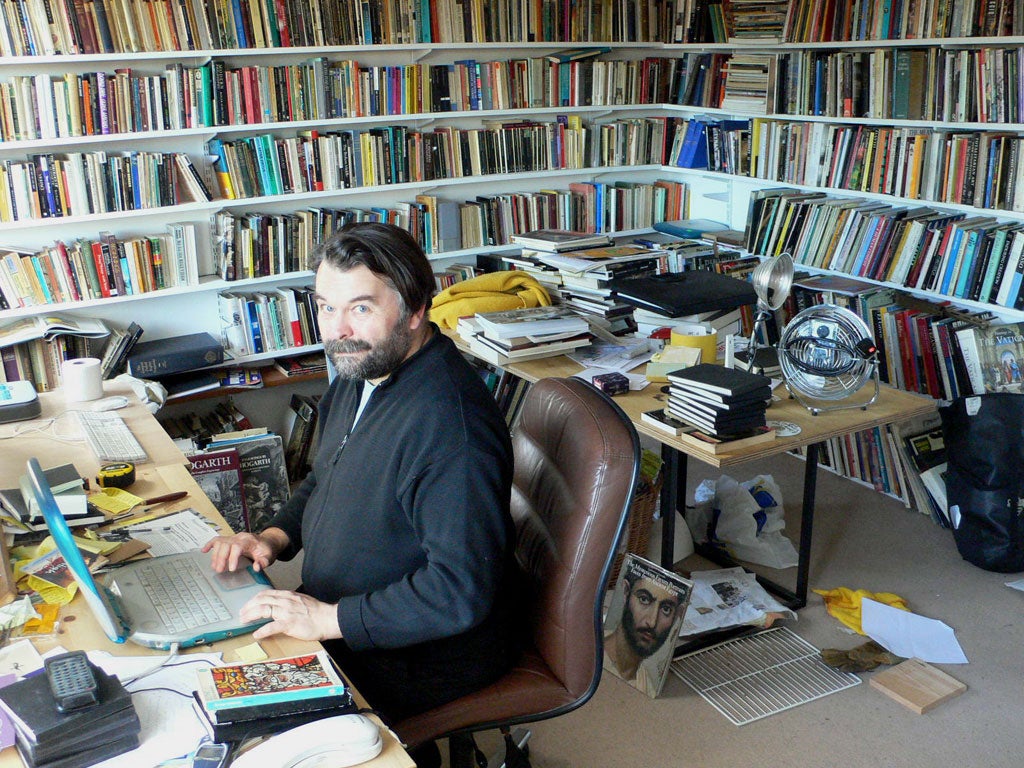Until Further Notice I Am Alive, By Tom Lubbock

This extraordinary, vast little book enacts Larkin's almost-instinct, almost true: what has remained of him is love. Tom Lubbock was art critic of this paper for many years until a brain cancer removed, inch by inch, his language and then he died, stupidly young.
He was a writer secondly. First, he looked, not at himself nor soliciting the admiration of the reader, but at the image he was writing about. The words were a necessary tool brilliantly wielded. It was a pure form of ekphrasis.
And then the words were taken away. Neurological disorders tend to be monstrously cruel like that. If he had been a watchmaker, you can bet his cancer would have taken away his hand-eye co-ordination; a musician, his ear. Evolution says that nature has finished with us once we've passed on our genes; human sentiment, that finding love is the highest good and, that being achieved, it's gently downhill.
Lubbock did both late, and nature's revenge followed swiftly. He married late, became a father late, and almost immediately life dealt him the short straw. We are all dealt it in the end. Nor is it really the timing; there's never a good time to be told your number's up.
What is extraordinary is Lubbock's response. "I always felt from the start that it would be wrong to complain... This going wrong is the way I have gone wrong. I will not deny it, abjure it." He and his wife Marion are in this together. Their intimate companionship, a mutual self-identification, brightened. He falls in love with his little son Eugene (a lucky fellow to have such a father, such a testament). Eugene's acquiring of language matches his father's losing of it.
Lubbock writes love letters to his family, adamantine in their resolve. Occasionally Jesus, his tribal god in whom he has no particular belief, seems to be putting in a shy appearance on the periphery. But, mainly and wonderfully, Lubbock considers himself a body, an operating-system, a manifestation as meticulous and non-transcendent as those he wrote about, on canvas or in the marble.
It's hard, impossible, to précis this magical book: magical not by its author's intent but by what it achieves. He addresses one of the most ancient of philosophical questions – how should a man die? – with emotional assurance, a precise and kindly brutality of judgment, rare in the current rash of death-confessional writing. This is a book in a different class. More; it is a different class of thing.
Most striking is the language. Samuel Beckett spent his life trying to reach the limits of language, beginning by abjuring English and writing in French. By the end of the second book in his monumental trilogy, Malone Dies, he is getting there. Malone out on the lake in the dark with the murderous asylum-warden Lemuel falls asleep, or dies, along with his language in its fits and starts and noddings-off:
...I mean never he will never
or with his pencil or with his stick or
or light light I mean
never there he will never
never anything
there
any more
The modifiers go, the verbs simplify, only the nouns remain, the things that do the real work in our lives. And it's the same for Lubbock, under a greater force majeure than literary investigation. He writes of his wife and son:
Marion and her embrace.
Ground, river and sea.
Eugene – his toys, his farm,
his fishing game.
Getting quiet.
And then:
The final thing. The illiterate. The dumb.
Speech?
Quiet but still something?
Noises?
Nothing?
My body. My tree.
After that it becomes simply the world.
There's nothing to be said about this. Except perhaps that once language is stripped away we are left with poetry. His wife writes that the last words "were understood, spoken aloud and pulled together through question and answer, repetition, verbal challenges, inspired guesswork and frustration... Very early on, Tom wrote: 'The shape of the creature is the pressure of life against the limit of death'. We were right against the limit for a very long time, and we knew what we were doing and we kept on doing it, During that long time something was made and here it is." We should be grateful. I hope I remember this book when it's my turn to die. There's little more to be said.
Subscribe to Independent Premium to bookmark this article
Want to bookmark your favourite articles and stories to read or reference later? Start your Independent Premium subscription today.

Join our commenting forum
Join thought-provoking conversations, follow other Independent readers and see their replies